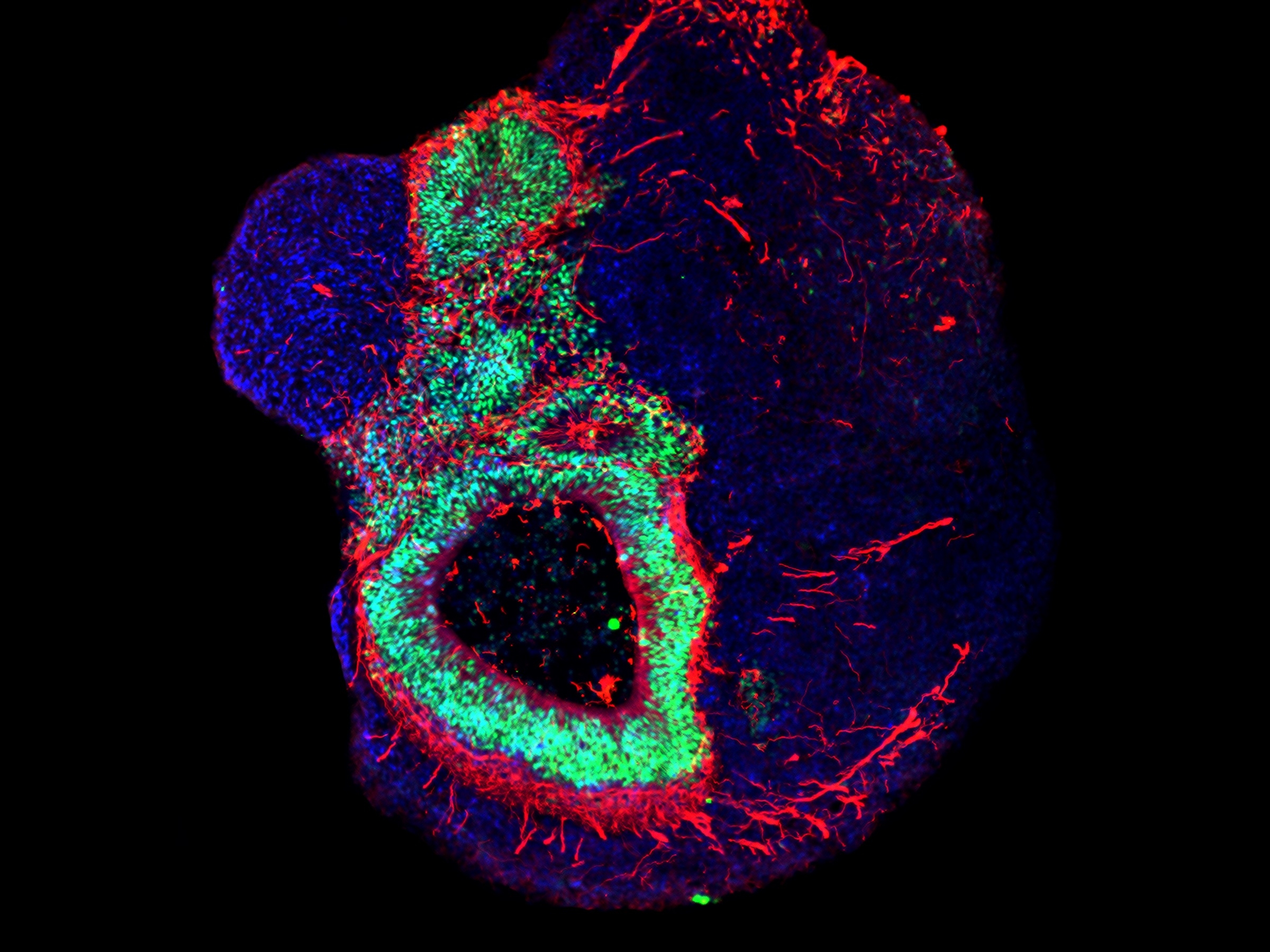News
EU research consortium "TimeLife" starts with one million euro
Wednesday, 16 January 2019 13:15A new European research consortium named "TimeLife" wants to use cell cultures to detect diseases at an early stage in order to develop precise therapeutic strategies. The 120 participating European scientists will initially receive one million euros from the European Union for a period of one year to work out a detailed plan.
Using organ-like systems (organoids) from the patient's own stem cells the researchers want to develop personalised disease models and carry out individual cell analyses. Gene modifications using CRISPR technology as well as imaging techniques will also be used to investigate how cells remain healthy, change over the course of a lifetime, become ill and react to drugs. The large amounts of data from high-throughput investigations require computer-assisted strategies for data analysis and pattern recognition when changing the cells studied. The data will serve as the basis for mathematical modelling.

With the help of mini organs - such as brain organoids in this case - the techniques of single cell analysis can also be applied to human tissue.
Photo: Agnieszka Rybak Wolf, working group of Nikolaus Rajewsky at BIMSB / MDC
In the project consortium, scientists from 50 institutions from various disciplines such as biology, medicine, physics, computer science and mathematics, but also social sciences, ethics and economics will work together. Through a survey in advance, the researchers want to respond to the needs of society and expect a substantial contribution to the pharmaceutical, biotechnology and data-processing industries at the end.
The runtime of TimeLife is 10 years. The consortium is coordinated by the Max Delbrück Center in Berlin together with the Institut Curie in Paris.
Source:
https://idw-online.de/de/news708893
Hamburg heart researcher honoured with animal protection research award
Tuesday, 15 January 2019 10:56The this year's research award for the promotion and development of alternative and complementary methods to animal testing of the Free and Hanseatic City of Hamburg went to Professor Dr Arne Hansen from the Institute of Experimental Pharmacology and Toxicology of the University Hospital Hamburg-Eppendorf. He was awarded for his in-vitro developments of human heart tissue.
Bf3R: Register for animal experiments
Monday, 14 January 2019 09:19A new register has been established at the German Centre for the Protection of Laboratory Animals (Bf3R). Scientists can voluntarily register their animal experiments in advance. The register is intended to prevent duplications.
Berlin: Charité coordinates EU project VirtualBrainCloud to improve Alzheimer's therapy
Sunday, 06 January 2019 10:13As part of the Horizon 2020 program, the EU is funding the cloud-based neuroinformatics platform VirtualBrainCloud, which is coordinated by Charité University Hospital Berlin. The aim is to improve diagnosis and therapy for patients suffering from neurodegenerative diseases using computer simulation.
Heidelberg: New stem cell type developed from blood cells
Friday, 21 December 2018 14:17Scientists from the German Cancer Research Centre (DKFZ) and the HI-STEM stem cell institute in Heidelberg have generated a new type of stem cell. From human blood cells, they produced neural stem cells similar to those found in the early embryonic development of the central nervous system.
Hamburg: In vitro model against atrial fibrillation
Friday, 21 December 2018 12:20A team of researchers from the German Centre for Cardiovascular Research (DZHK) and the University Hospital Hamburg-Eppendorf (UKE) has succeeded in converting patient skin cells into induced pluripotent stem cells from which they produced a beating human atrial heart muscle tissue. This model could be used for the development of personalised therapies against atrial fibrillation and can help to save animal experiments.
Pesticides damage nerve cells
Wednesday, 05 December 2018 10:41Glyphosate-based pesticides can have a damaging effect on the peripheral nervous system. Scientists at the University Hospital in Essen have obtained this finding through investigations with cell cultures.
Frankfurt University: Panel Discussion with Donald E. Ingber from Havard University
Monday, 03 December 2018 13:51This week, everything is all about organ systems on microchips at Goethe University in Frankfurt. As part of the this year's Friedrich Merz Foundation Guest Professorship, the outstanding American scientist Prof. Donald E. Ingber from Harvard University in Boston will inform about his work at the Goethe University in Frankfurt. During a scientific symposium on December 5 and a citizens' forum on December 6, interested students and laypersons will have the opportunity to meet the researcher and debate with him about his work.
PEI: Chromatin-opening Element improves stem cell yield
Friday, 30 November 2018 11:15Scientists at Paul Ehrlich Institute have developed a method with which the reliable production of genetically modified induced pluripotent stem cells can be improved.
DFG funding for in vitro research into Parkinson's disease
Wednesday, 28 November 2018 10:52A research project on Parkinson's disease has started at the Hamm-Lippstadt University of Applied Sciences. Cell culture methods using dopamine-producing nerve cells will be standardized and in vitro disease models will be generated for therapeutic treatment.



 Dr. rer. nat.
Dr. rer. nat. Menschen für Tierrechte - Tierversuchsgegner Rheinland-Pfalz e.V.
Menschen für Tierrechte - Tierversuchsgegner Rheinland-Pfalz e.V.